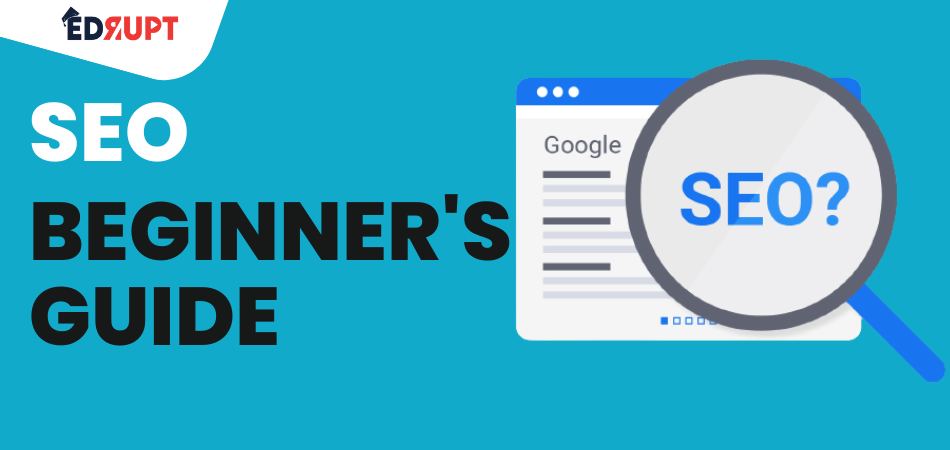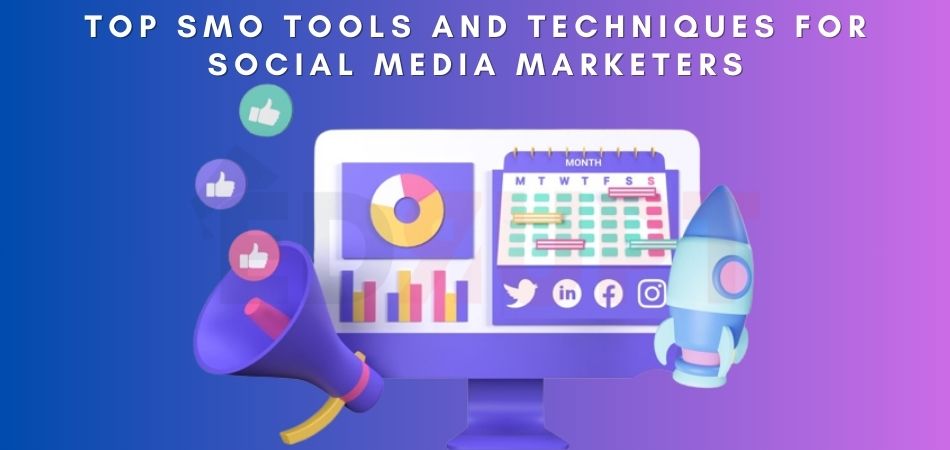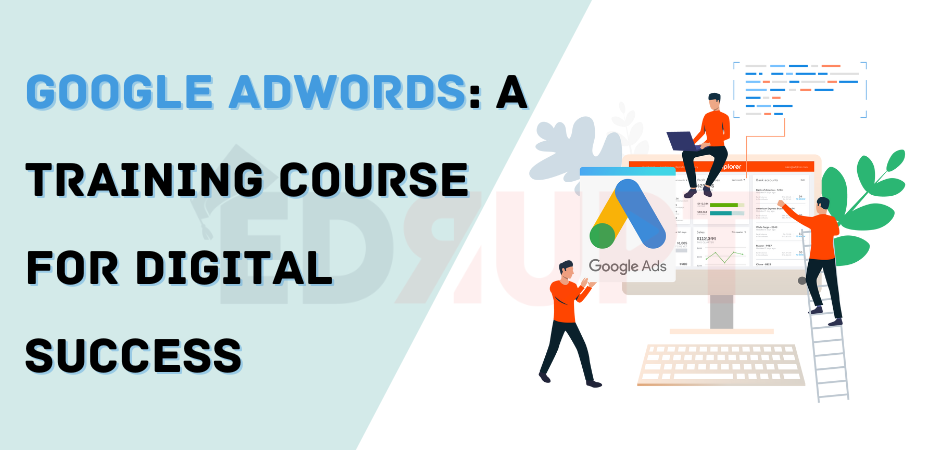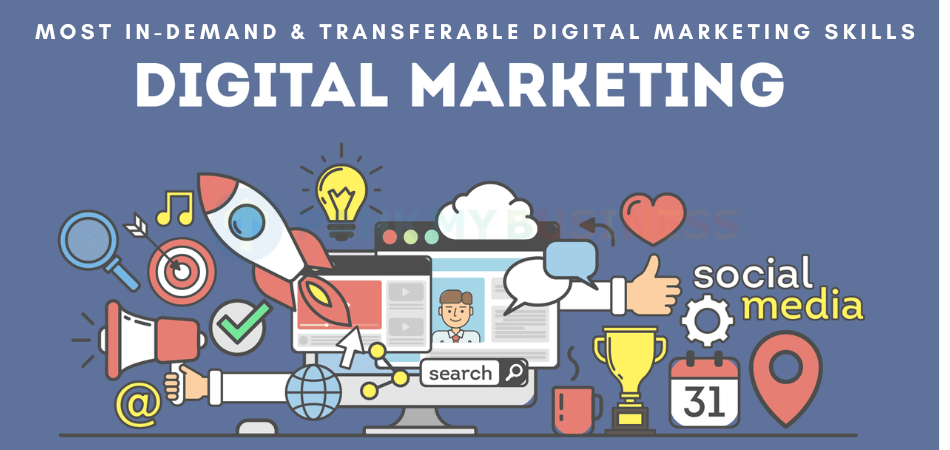Boost Your Online Presence with a Social Media Marketing Course
In this Blog, we will explore the fundamentals of social media marketing, providing insights and practical tips on developing effective strategies, creating engaging content, implementing advertising techniques, measuring campaign performance, building online communities, and staying up-to-date with the ever-evolving trends and best practices. Whether you are a seasoned marketer or a beginner looking to harness the power of social media, this guide will help you unlock the full potential of your online presence.
Introduction to Social Media Marketing
What is Social Media Marketing?
Social media marketing is like throwing a party online, but instead of balloons and party hats, you’re using platforms like Facebook, Instagram, and Twitter to promote your brand or business. It’s all about leveraging the power of social media to connect with your target audience, boost brand awareness, and ultimately drive more traffic and sales.
Importance of Social Media Marketing
If you’re not already convinced of the importance of social media marketing, let me break it down for you. Social media has become an integral part of our daily lives, with billions of people scrolling through their feeds each day. By tapping into these platforms, you can reach a vast audience and engage with potential customers in a way that traditional advertising simply can’t match.

Benefits of Social Media Marketing
So, what’s in it for you? Well, social media marketing offers a whole host of benefits. Firstly, it allows you to build brand awareness and establish your online presence. Secondly, it provides a platform for you to connect with your audience on a more personal level, fostering trust and loyalty. Lastly, it can drive traffic to your website, generate leads, and ultimately boost your bottom line. It’s like a triple threat!
Understanding Different Social Media Platforms
Overview of Popular Social Media Platforms
Think of social media platforms as a buffet, each with its own unique flavors. From the bite-sized tweets of Twitter to the visual feast of Instagram, understanding the different platforms is key. Facebook, Twitter, Instagram, LinkedIn, Pinterest – the list goes on! Each platform has its own quirks, audience, and potential for reaching your target market.
Target Audience and Demographics
Knowing your audience is as crucial as knowing where to find the best tacos in town. Different social media platforms attract different demographics. Understanding who your ideal customers are and which platforms they frequent will help you tailor your marketing efforts and get the most bang for your buck.
Unique Features and Capabilities
Just like superheroes, social media platforms have their own special powers. Instagram is the undisputed queen of visuals, while LinkedIn’s professional network is perfect for B2B connections. By understanding the unique features and capabilities of each platform, you can strategically choose where to invest your time and resources.
Developing a Social Media Strategy
Defining Goals and Objectives
Before diving headfirst into the social media sea, it’s important to set sail with a clear destination in mind. What are your goals and objectives? Do you want to increase brand awareness, drive traffic to your website, or boost sales? Defining these goals will guide your social media strategy and ensure you’re not just throwing spaghetti at the wall and hoping it sticks.
Identifying Target Audience
Ah, the beloved target audience. Who are they? What are their interests, pain points, and favorite cat videos? Understanding who you’re trying to reach will help you craft content that speaks directly to them and sparks engagement.
Choosing the Right Social Media Channels
Remember that buffet of social media platforms? It’s time to choose your plates wisely. Depending on your goals and target audience, you might find Twitter more appetizing than Snapchat, or vice versa. Don’t spread yourself too thin; focus on the platforms that align with your objectives and where your audience is most active.
Creating a Content Plan
Just like a chef needs a recipe, you need a content plan. What will you post, when, and how often? Having a well-thought-out content plan will keep your social media presence consistent and avoid those awkward moments where you’re scrambling for something to post. Plus, it’s an opportunity to get creative and showcase your brand’s personality.
Creating Engaging Content for Social Media
Understanding the Importance of Content
Content is the lifeblood of social media marketing. It’s what keeps your audience coming back for more. Whether it’s a witty caption, an inspiring quote, or a hilarious meme, your content should be valuable, entertaining, and share-worthy. Remember, you’re not just selling products or services; you’re building a community.
Types of Content for Social Media
Just like a wardrobe, your content should have variety. Mix it up with photos, videos, blog posts, and even live streams. Experiment with different formats to keep your audience engaged and excited to see what you’ll serve them next.
Crafting Compelling Headlines and Captions
You know what they say: first impressions matter. Your headlines and captions are your chance to grab attention and make people stop scrolling. Be witty, be bold, and make sure your content is worth the click. Oh, and don’t forget the power of emojis – they can add that extra sprinkle of personality.
Incorporating Visuals and Multimedia
A picture is worth a thousand words, and a well-placed GIF can make someone snort-laugh while scrolling. Visuals and multimedia are essential in capturing attention and conveying your message quickly. But remember, quality trumps quantity – no blurry cat videos, please.
Enjoy your social media marketing course and don’t forget to have fun along the way. After all, social media is meant to be social, so let your personality shine through and engage with your audience like the charming and knowledgeable marketer that you are!Fostering a Positive and Supportive Online Environment
Implementing Social Media Advertising Techniques
Introduction to Social Media Advertising
Social media advertising is like a megaphone for your business. It allows you to amplify your brand’s message and reach a wider audience than ever before. In this section, we’ll dive into the world of social media advertising and explore the various platforms and opportunities available.
Targeting and Segmentation Strategies
Gone are the days of blanket marketing messages. To truly succeed in social media advertising, you need to target the right audience with the right message. We’ll discuss various targeting and segmentation strategies to help you narrow down your target audience and tailor your content to resonate with them.
Creating Effective Ad Campaigns
Creating ads that grab attention and drive action is an art form. In this section, we’ll share tips and best practices for creating effective ad campaigns on social media. From compelling copywriting to eye-catching visuals, we’ll cover all the essentials to make your ads stand out from the crowd.
Analyzing Ad Performance and Optimization
Once your ads are up and running, it’s essential to monitor their performance and make data-driven decisions to optimize their effectiveness. We’ll explore the various metrics and analytics tools available to help you measure, track, and optimize your social media ad campaigns for maximum impact.
Measuring and Analyzing Social Media Campaigns
Setting Key Performance Indicators (KPIs)
To evaluate the success of your social media campaigns, you need to establish clear key performance indicators (KPIs). We’ll guide you through the process of defining measurable goals and metrics that align with your business objectives, allowing you to track your progress and gauge your campaign’s overall performance.
Monitoring Social Media Metrics
In this section, we’ll delve into the world of social media metrics. From reach and engagement to conversions and click-through rates, we’ll explore the various metrics you should monitor to gain valuable insights into your social media campaigns’ effectiveness.
Evaluating Campaign Performance
Evaluating campaign performance goes beyond just looking at metrics. It involves analyzing the overall impact of your campaigns, assessing their alignment with your brand, and identifying areas for improvement. We’ll provide practical tips and frameworks to help you evaluate your social media campaigns holistically.
Making Data-Driven Decisions
Data is a powerful tool in the world of social media marketing, but only if you know how to interpret and leverage it effectively. We’ll show you how to make data-driven decisions by extracting meaningful insights from your social media metrics and using them to drive your strategy forward.
Building and Managing an Online Community
Understanding the Importance of Community
Building a strong online community around your brand is more critical than ever. We’ll delve into the importance of fostering a sense of community, exploring the benefits it can bring to your business and how to create an environment where your audience feels valued and engaged.
Engaging with your Audience
Engagement is the heart and soul of social media. In this section, we’ll share strategies and tactics to help you effectively engage with your audience, from crafting compelling content to fostering meaningful conversations and interactions that keep your community coming back for more.
Handling Feedback and Responding to Customers
Feedback is a valuable resource for any business. We’ll discuss strategies for handling feedback and reviews on social media, as well as how to respond to customers in a way that maintains a positive brand image and resolves concerns effectively.
Fostering a Positive and Supportive Online Environment
Creating a positive and supportive online environment is crucial for building a thriving community. We’ll provide tips on moderating your online spaces, promoting respectful dialogue, and nurturing a welcoming atmosphere where diverse opinions and experiences are valued.
Staying Ahead of the Social Media Curve
Keeping up with Trends and Platform Updates
Social media platforms are constantly evolving, and staying ahead of the curve is essential to maintain your competitive edge. We’ll discuss strategies for keeping up with the latest trends and platform updates, ensuring your social media marketing efforts remain fresh, relevant, and effective.
Experimenting with New Strategies and Tools
In the fast-paced world of social media, experimentation is key. We’ll encourage you to step out of your comfort zone and try new strategies and tools to keep your social media marketing efforts innovative and engaging. After all, you never know which new idea might become your next big success.
Embracing Change and Adaptability
Change is the only constant in the social media landscape. We’ll explore the importance of embracing change and being adaptable in your approach to social media marketing. By staying open-minded and responsive to shifts in consumer behavior and platform algorithms, you’ll be well-positioned to navigate the ever-changing social media world.
Continuing Education and Professional Development
Social media marketing is a dynamic field, and there’s always something new to learn. We’ll emphasize the importance of continuing education and professional development in mastering the art of social media marketing. Whether it’s attending industry conferences, taking online courses, or staying informed through relevant resources, investing in your knowledge and skills will pay off in the long run.
In conclusion, social media marketing has become an indispensable tool for businesses in today’s digital age. By understanding the nuances of different social media platforms, developing a strategic approach, and consistently creating engaging content, businesses can effectively connect with their target audience, drive brand growth, and achieve their marketing goals. It is crucial to regularly analyze and measure the performance of social media campaigns, adapt to changing trends, and actively engage with your online community.
By staying informed and implementing best practices, businesses can stay ahead of the competition and maximize the benefits of social media marketing. So, take the knowledge and insights gained from this article and embark on your social media marketing journey to elevate your brand presence and connect with your customers like never before.
FAQ
Q: Is social media marketing only effective for certain types of businesses?
A: No, social media marketing can be beneficial for businesses of all sizes and industries. Whether you are a retail brand, a service-based company, a non-profit organization, or a freelancer, social media platforms offer a wide range of targeting options and tools to reach and engage with your target audience.
Q: How long does it take to see results from a social media marketing campaign?
A: The timeline for seeing results from a social media marketing campaign can vary depending on various factors such as your goals, target audience, budget, and the strategies implemented. While some businesses may start seeing immediate results in terms of increased engagement or website traffic, it generally takes time to build a strong online presence and convert followers into customers. It is important to be patient, consistent, and continuously analyze and optimize your campaigns for long-term success.
Q: Can social media marketing replace other forms of marketing?
A: Social media marketing should be viewed as a complementary component of your overall marketing strategy rather than a replacement for other forms of marketing. It offers unique advantages such as cost-effectiveness, targeting capabilities, and direct engagement with the audience. However, incorporating a mix of digital marketing channels, including email marketing, SEO, content marketing, and traditional advertising, can help you reach a wider audience and diversify your marketing efforts.
Q: Do I need to be active on every social media platform?
A: It is not necessary to have a presence on every social media platform. Instead, it is recommended to identify the platforms that align with your target audience and business goals. Conduct market research, analyze demographics, and consider the nature of your product or service to determine the platforms that will provide the greatest potential for reaching and engaging with your target audience effectively.
















